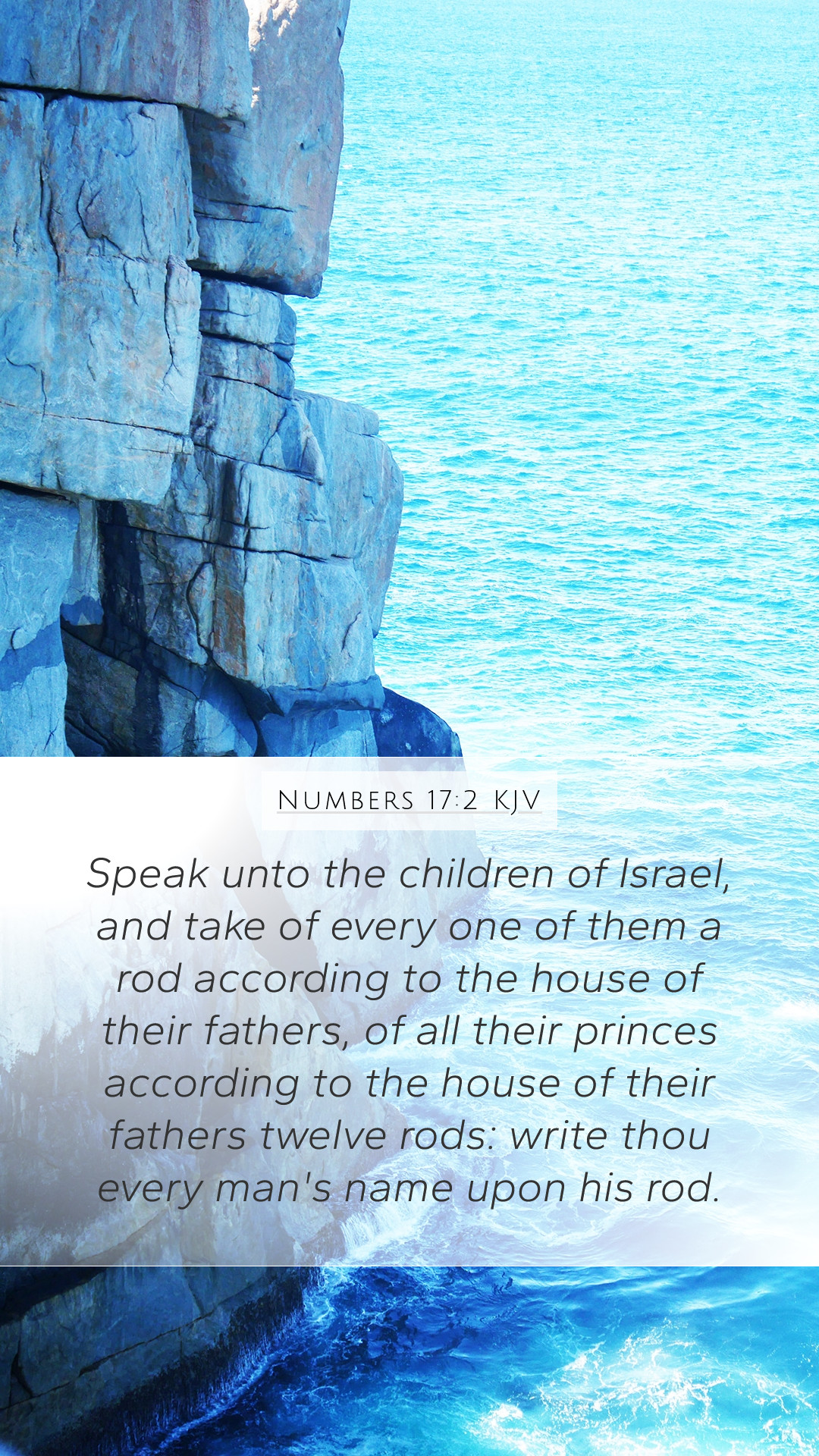Understanding Numbers 17:2
Bible Verse: Numbers 17:2
"Speak unto the children of Israel, and take of every one of them a rod according to the house of their fathers, of all their princes according to the house of their fathers twelve rods: write thou every man's name upon his rod."
Verse Meaning and Commentary
This verse from the Book of Numbers is significant in the context of God's unique choice of leadership within Israel, revealing crucial insights into the nature of divine selection as well as the faithfulness of God's promises.
- Divine Instruction: God commands Moses to collect a rod from each leader of the twelve tribes, emphasizing His authority and the importance of obedience in Israel's leadership structure. This directive serves as a precursor to the miraculous event that follows, showcasing the sovereignty of God in appointing leaders.
- Symbolism of the Rods: The rods represent the authority and lineage of the twelve tribes. Each rod stands as a symbol of the tribes’ unique identity and God's covenant with them. The choice of using rods illustrates that God governs not merely by visible strength but through His chosen vessels.
- Names on the Rods: By writing the names of each tribal leader on their respective rods, it reinforces personal responsibility and individual representation. This act signifies that God recognizes and honors each leader, ensuring His people see their leaders as His appointed authorities.
Biblical Context
The background of Numbers 17 discusses a crisis of faith among the Israelites regarding their leaders. Previous chapters highlight the conflict between the established leaders and the rising discontent among the people. This situation necessitates God’s intervention and validation of legitimate leadership.
As Albert Barnes explains, "The purpose of the command was to establish the legitimacy of Aaron's priesthood against the challenge posed by Korah and others." This context is crucial for understanding the verse, showcasing God's direct involvement in upholding His chosen representatives.
Insights from Commentators
Matthew Henry:
Henry emphasizes the importance of God’s instructions to Moses, noting how obedience leads to divine reaffirmation. He points out that this event serves not merely as proof of Aaron's selection but as a broader lesson about faith and trust in God's choices.
Adam Clarke:
Clarke elaborates on the symbolic implications of the rods, suggesting they also represent the power of life and death. The rod, commonly a shepherd's tool, underscores God's guidance over His flock, drawing parallels to Christ as the ultimate shepherd and intercessor.
Significance of the Verse
This passage is pivotal as it marks a critical point in Israel's history—where God directly intervenes in human affairs to establish and confirm His divine will. The subsequent miraculous blossoming of Aaron's rod serves as a tangible sign of God’s choice, challenging the Israelites to reconsider their doubts about His appointed leaders.
Application for Today
For modern readers, Numbers 17:2 challenges us to examine our attitudes towards leadership and authority in both spiritual and secular contexts. It urges a reflection on how we acknowledge and respond to God’s appointed leaders in our lives. Understanding the divine purpose in leadership can enhance our church dynamics and personal faith journeys.
Cross References
- Exodus 28:1: God commands the appointment of Aaron and his sons as priests, establishing leadership.
- Numbers 16: Highlights the rebellion against Moses and Aaron, leading to God's demonstration of authority.
- Hebrews 5:4: Discusses the appointment of priests, linking back to the choices made in Numbers.
Conclusion
In summary, Numbers 17:2 presents a profound insight into biblical leadership, divine selection, and the importance of recognizing God's sovereignty. By studying this verse and its broader implications, individuals can gain a deeper understanding of Scripture while applying these lessons to their lives.


